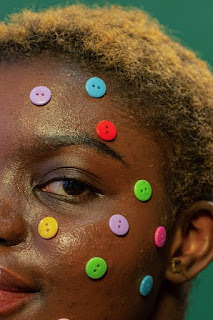With a few lifestyle changes, it's often possible to bring more balance to your system and sort out the acne problems.
To help keep your skin healthy and balanced it is very important to consume plenty of drinking water, this is one of the simplest natural remedies for acne vulgaris.
By drinking enough water each day you're helping your entire body flush out the detrimental toxins that can easily clog up your pores and trigger skin flaws and acne.
Drinking the recommended amount of water (approximately 8 drinking glasses a day) is going to help you enormously with taking care of your skin.
Use sunscreen! Too much sun exposure is damaging to the skin. It dries out the skin even more and this may cause acne breakouts. To prevent this before it begins, use a high SPF, preferably, with a moisturizer built-in. This will help prevent acne flare-ups and keep your skin looking healthy and fresh.
Add a toner to your skincare routine to prevent acne breakouts. In addition to your normal washing routine, adding a toner after cleansing can help balance the Ph levels of your skin. This can prevent your skin from drying out or becoming too oily and will stop breakouts before they occur.
If you need to reduce a large, red pimple, try using a cold compress or even an ice cube wrapped in a cloth. Applying the cold compress just before bed can cause reduced redness in the morning because the cold will reduce the blood flow to the blemish and the swelling will decrease.
To help combat acne, add chromium to your diet. You can take a chromium supplement once a day. This will cause your pimples to heal quickly, and keep acne at bay. Chromium, which is popular in weight-loss diets, is also effective for healing infections you may have on your skin.
Start taking zinc supplements. Zinc has actually been proven effective in combating acne breakouts. Take 50 mg or 25 mg doses three times a day for optimal results. As is often the case with any supplements, consulting your regular physician before you begin taking them is always a smart idea.
To help with your acne, make sure you're getting enough vitamins and minerals in your diet. One way to do this might be to eat a variety of fruit and vegetables, another way is to take a daily supplement. Whatever you do, as acne vulgaris is often a sign of poor nutrition, making sure your diet is healthy is a good way to get great-looking skin.Try avoiding too much sugar in your diet to prevent acne. Sugar causes insulin to increase which can trigger hormones that cause your skin to produce an abundance of sebum. Sebum is your skin's natural oil and too much of it creates a playground for bacteria. That bacteria can cause breakouts.
There is a household item that can help you get rid of your unwanted acne. It is right in your medicine cabinet. If you take just a dab of toothpaste and put it on a pimple before you go to sleep at night, by the morning it will have reduced in size and will be less red.
If you do not understand where your acne comes from, get checked for allergies. Acne is a natural occurrence, but for some people, it might be caused by certain chemicals. For instance, a bar of laundry soap or a cleaning product can cause your skin to break out. If this is the case, try other brands.
Acne and dry skin. Don't over-wash your face. Some people believe that having clean skin will cure their acne, but by using harsh chemicals often, or over-drying your skin with so many washes per day, you can actually make acne worse by irritating and drying out your sensitive skin. Instead opt for once in the morning, once in the afternoon, and once at night before bed, using a gentle and moisturizing cleanser.
It is okay to moisturize. Although excess oil can be the cause of acne vulgaris, many skin cleansing medications overly dry out the skin and moisturizers are the best way to remedy this. Just be sure to buy face-specific moisturizers that are labeled "non-comedogenic," which means that they will not clog your pores.





.png)


